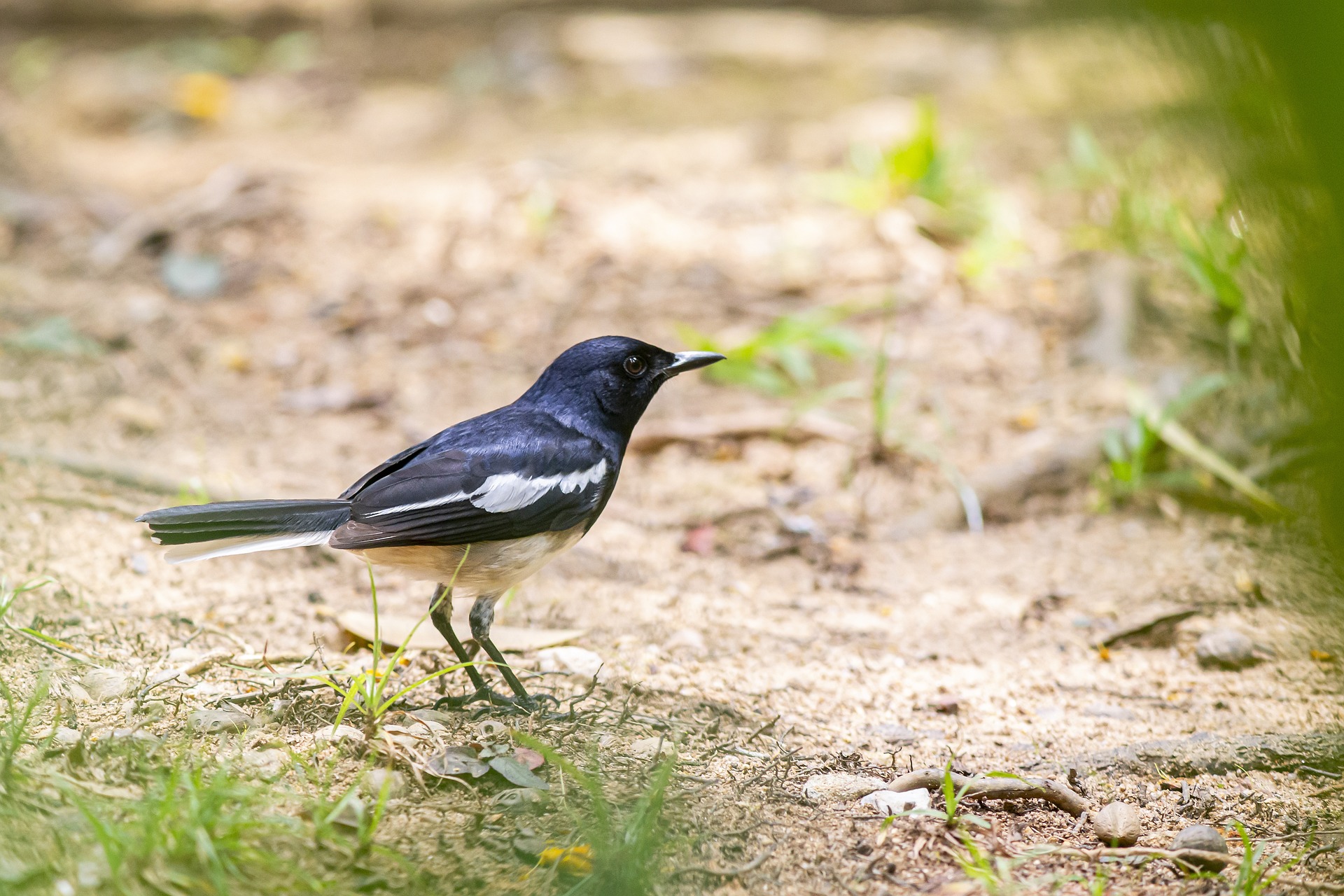The Oriental Magpie-Robin (Copsychus saularis) is a small passerine bird species belonging to the family Muscicapidae. Here are some key characteristics and information about this charming bird:
- Appearance: Oriental Magpie-Robins are sexually dimorphic, meaning males and females have different plumage. Males have striking black and white plumage, with glossy black upperparts, black wings with white wing patches, and a white belly and vent. They also have a long, slender black tail with white outer feathers. Females, on the other hand, have a more subdued coloration, with brownish-gray upperparts and a paler underbelly. Both sexes have a distinctive white patch on the outer tail feathers, which is visible in flight.
- Distribution: The Oriental Magpie-Robin has a wide distribution across South and Southeast Asia. It is found in countries such as India, Bangladesh, Sri Lanka, Nepal, Myanmar, Thailand, Malaysia, Singapore, Indonesia, and the Philippines. Within its range, it inhabits various habitats, including forests, woodlands, scrublands, parks, gardens, and urban areas.
- Habitat: Oriental Magpie-Robins are adaptable birds that can thrive in diverse environments, from dense forests to human-modified landscapes. They are often found in areas with dense vegetation and open spaces, such as forest edges, parks, gardens, and agricultural areas. They are also commonly seen in urban parks and residential areas.
- Behavior: These birds are known for their bold and inquisitive behavior. They are often seen hopping and flitting around on the ground, searching for insects, spiders, and other small invertebrates to feed on. They also consume fruits and berries, especially during the non-breeding season. Oriental Magpie-Robins are territorial birds, and males may defend their territories vigorously against intruders.
- Vocalization: Oriental Magpie-Robins are accomplished singers with a melodious and varied song. They are known for their clear and flute-like whistles, which they use for territorial defense and courtship. Both males and females sing, but the male’s song is usually louder and more elaborate.
- Breeding: Breeding season for Oriental Magpie-Robins varies depending on their geographical location. They typically build cup-shaped nests made of grass, leaves, and other plant materials, which are lined with softer materials such as feathers and hair. The female lays a clutch of eggs, usually ranging from 3 to 6 eggs, which are incubated for about two weeks.
- Conservation: The Oriental Magpie-Robin is not considered globally threatened, and its population appears to be stable. However, it may face localized threats from habitat loss, urbanization, and pesticide use. Conservation efforts focus on preserving and restoring suitable habitats, including the protection of forested areas and green spaces in urban environments.
Overall, the Oriental Magpie-Robin is a charismatic and adaptable bird species that adds beauty and charm to its native habitats across Asia. Its melodious song and engaging behavior make it a favorite among birdwatchers and nature enthusiasts.
Visited 1,069 times, 15 visit(s) today
Views: 1307
Subscribe to the newsletter:
